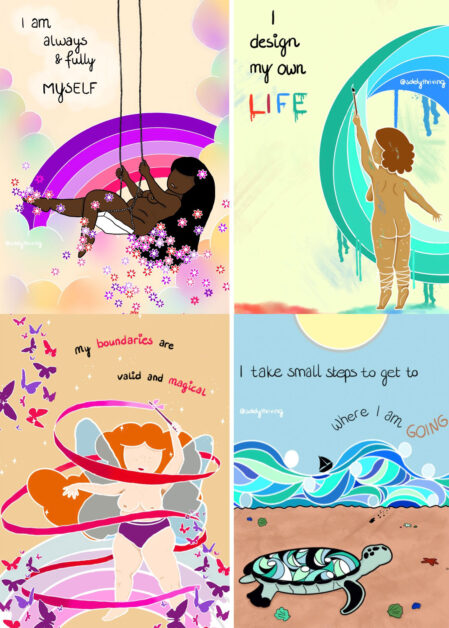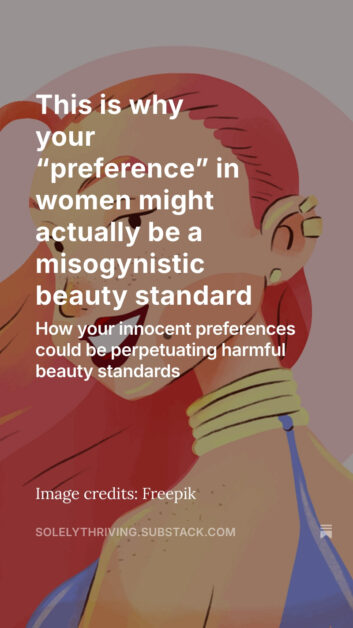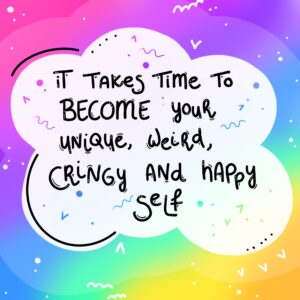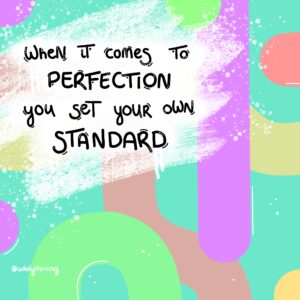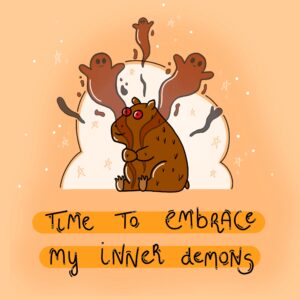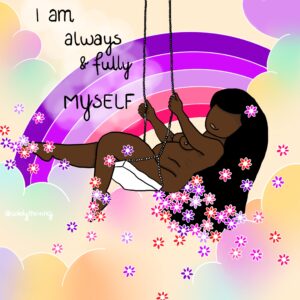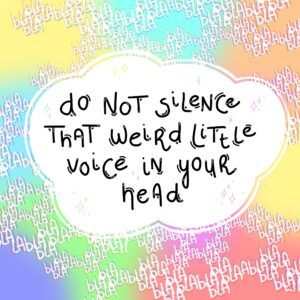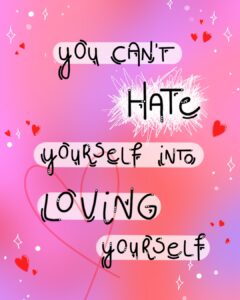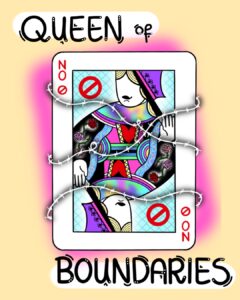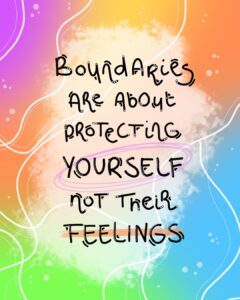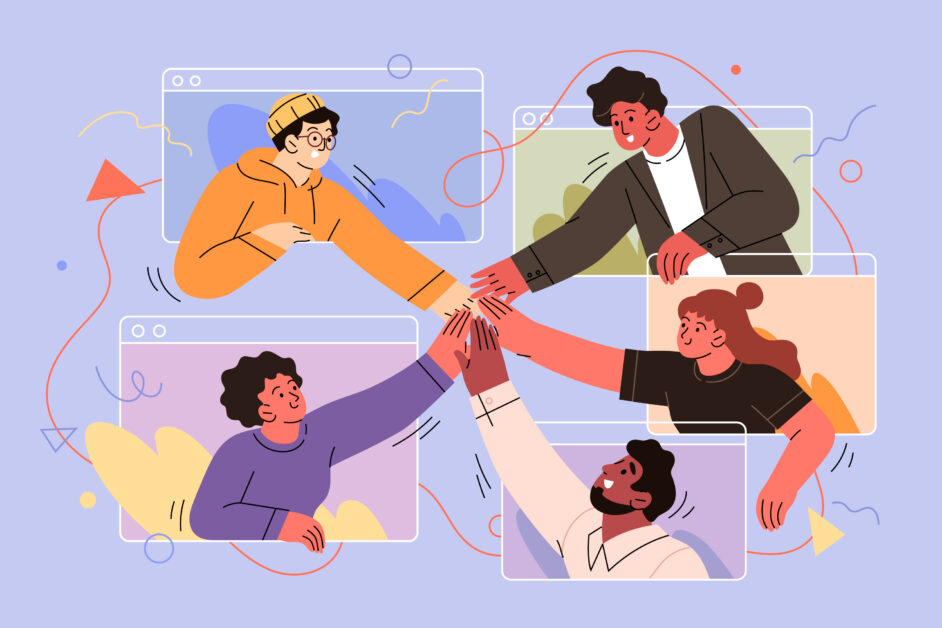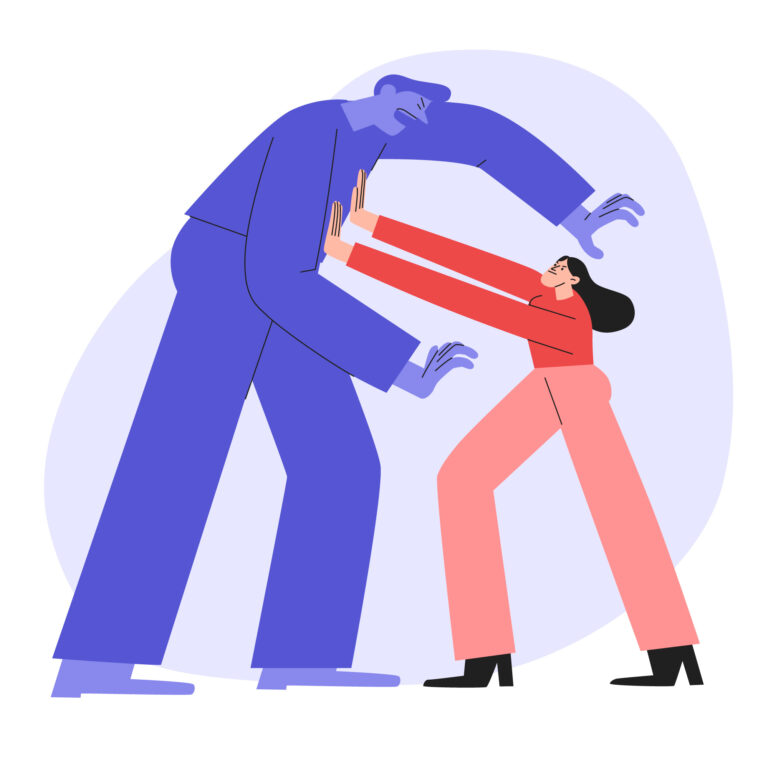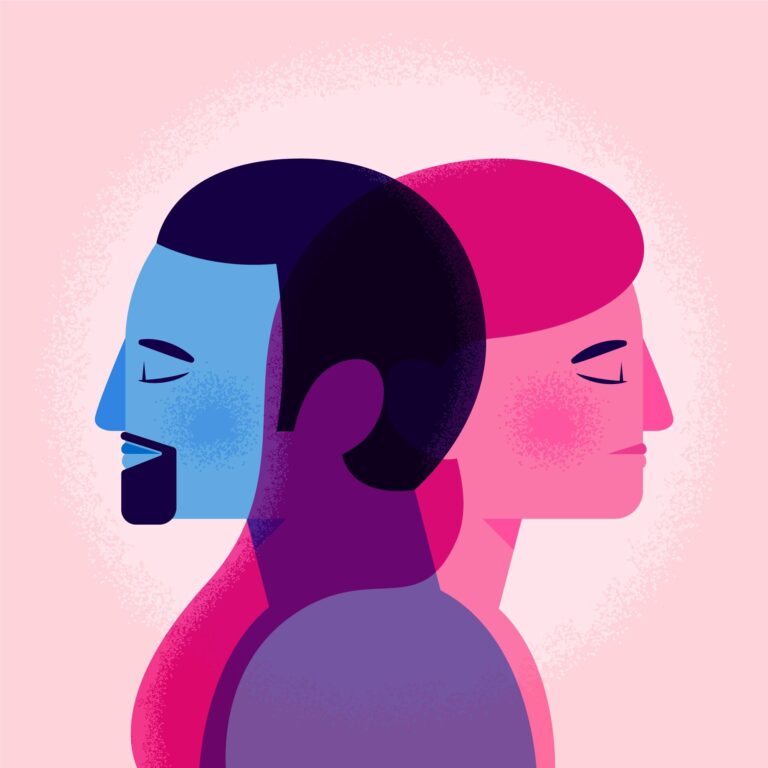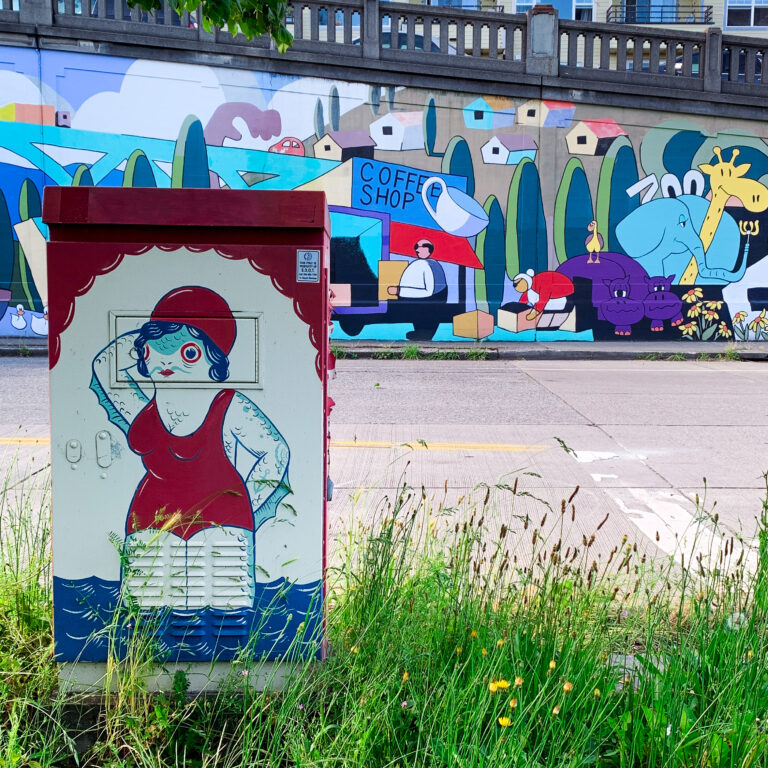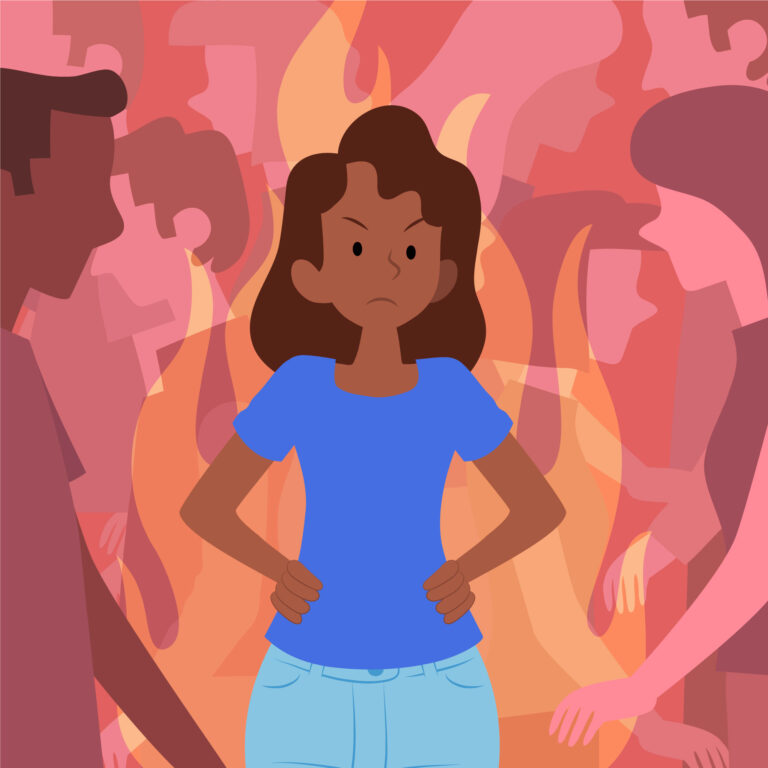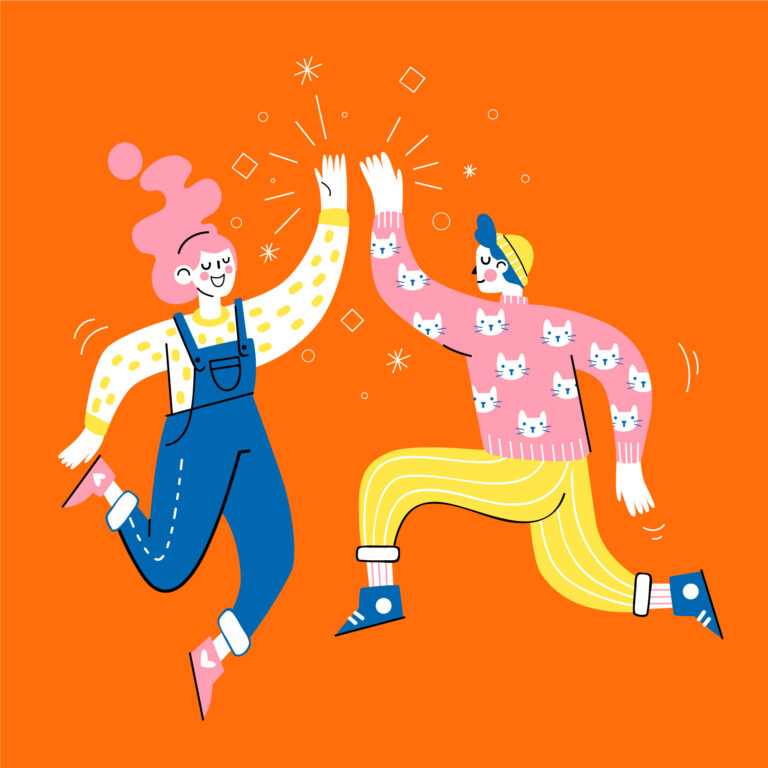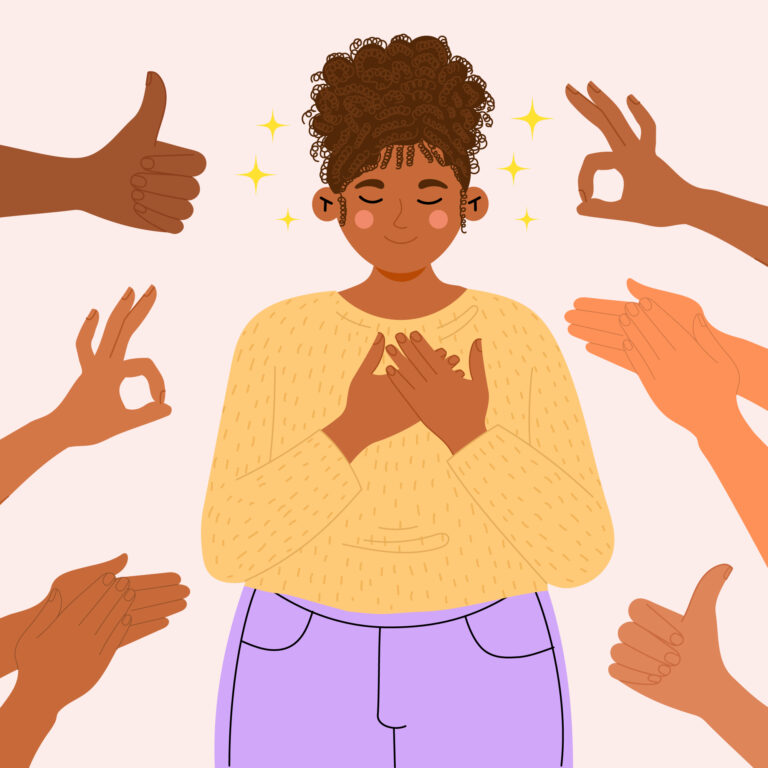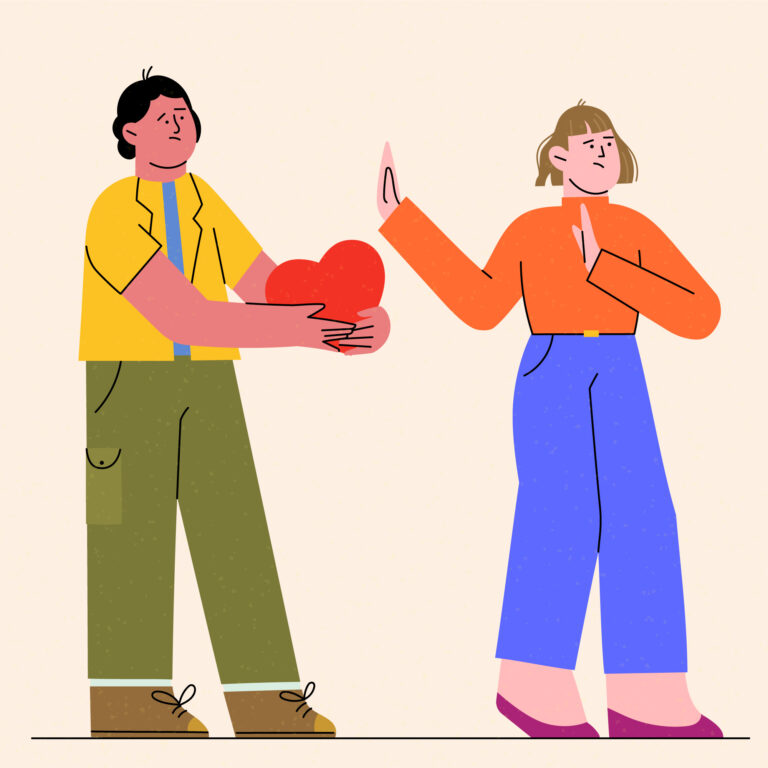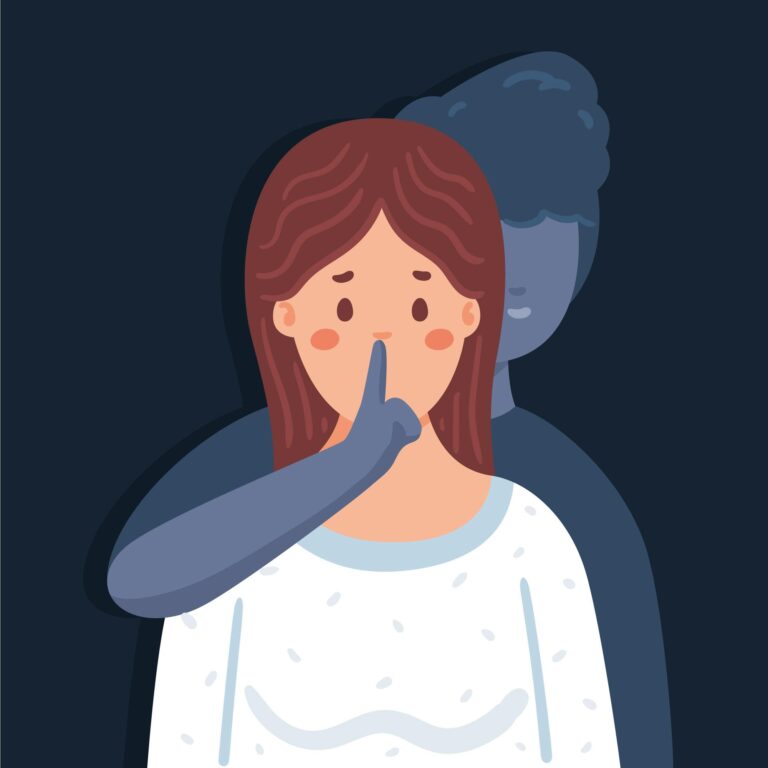The Wickedness of white women: cosplaying goodness doesn’t make you good
Us white women want to be Glinda the Good but end up wicked in the end
The Wickedness of white women has been the root cause of many of the horrible things that played out in the history of humankind. Not just because of the white woman’s own participation in atrocities, but also because she has to maintain her desirability to the white men she always aims to please. We as white women have a natural predisposition to wickedness. That women of color have been the victim of for decades. The reality is: we’re all a little bit Glinda the “Good”. And it’s about time we examined that ‘wicked’ part of ourselves.
*SPOILER ALERT*: if you haven’t seen it, this blog post will be discussing the movie Wicked and might contain spoilers.
Yes, we are going to talk about Glinda today.
Ever since I watched the new Wicked movie in the theater, I’ve been obsessed with Glinda. But more importantly, I’ve been obsessed with the number of Glinda stans out there. And what it made me realize about the Wickedness of white women.
And I’m probably going to piss some of them off in this very post.
Because I am here to argue that Glinda is indeed a complex character that can’t be labeled a villain. But she isn’t actually good either.
And what I really want to argue, is that we as white women should all be learning from her.
Because Glinda, with all her ‘good’ intentions, is a part of us.
Short summary for quick readers
- Good intentions do not always mean good redults. Especially when we're trying to navigate complex problems that we have no real understanding of.
- White women have an intrinsic feeling of doing good no matter what. We want to solve discomfort and fix problems. Even if it's something that does not need fixing.
- Whiteness is not just about skin color; it's about behavior and appearance. The perfect white women is caring and nurturing without disrupting.
- In order to be deemed beautiful and 'good', we have to appeal to men; our one way to get power. And we will do whatever needed to get it. Even throw others under the bus.
- The desire to protect ourselves while also wanting to nurture and love, are in direct conflict with each other: doing good things without disruption doesn't exist.
- Glinda is the embodiment of this conflict: she wants to do good and be loved. But when it comes to actual disruption, like Elphaba wants to do, she can't do it.
- She assumes that her life is the blueprint for others and everyone who doesn't live like her is 'sad' and must be fixed. She is privileged and unaware of it while still expecting her idea of 'decency' from people who are physically unable to give her that.
- When your motivation for goodness is corrucpted by your ego, then you will never actually do good. Because that's when performance slips in.
- Behind every Glinda, there's a legion of white people. We chase goodness and love being in close proximity to it because we think it'll make us good too.
- White women value intentions over impact. We hate that inaction can also be labeled as 'bad' because we thought that not doing anything could absolve us of accountability.
- In order for white women to be good, we need to reject the desire to be accepted and respected and our constant craving of approval. We have to embrace wickedness.
* Free wallpaper download * Free wallpaper download * Free wallpaper download
* Free wallpaper download * Free wallpaper download * Free wallpaper download
Some PSA’s first
Now let’s start with a disclaimer. I have only seen the movie. So, I will only speak on the Glinda that we’ve seen as portrayed by Ariana Grande.
People who enjoyed the Broadway show have promised me I will “eat my words” as soon as the second part comes out. And I can’t wait to see it happen. But for now, I will only speak on Galinda/Glinda as seen in Wicked – part 1.
Another disclaimer: people love to call me racist because of this take. And I’m not going to entertain that thought in this blog. Because, honestly, I don’t feel like it’s worth my time.
If you think I am racist against white people: suck it up. Sit with it and maybe reflect after reading the whole thing.
The privilege of white women
If you read my blog frequently, then you probably feel like you’re ‘good’ people. At least, most of us want to be.
And it makes sense: many of us have a deep empathy. A sense of justice that was activated somewhere along our journey to (online) activism, that we now desperately want to use to make the world a better place.
So, we try to do just that. To take little steps towards goodness and assume that if our intentions were right, then we couldn’t possibly be wrong.
But the harsher reality is: we can not all be the epitome of goodness just because we want to be. Human beings are a complex species and good intentions don’t always mean good results. Especially if we’re trying to navigate complex problems that we actually have no real understanding of.
That’s what privilege is for a white woman: never having to know the reality of growing up as a non-white woman. And not exactly knowing what the voices we’re elevating and advocating for actually mean when they talk about their oppression.
The need to do good
So, we try to be good in the ways we believe are good. Which, ultimately, is the only thing you can do, right?
But acting in ways you assume are good, doesn’t necessarily translate to ‘goodness’.
In fact, we’re all just playing the part of ‘good’. A smokescreen that actually doesn’t really exist.
We play ‘empathy’ when needed, and pull up ‘compassion’ when we know we should. It’s not that it’s manipulation, it’s just a learned response.
It means that we read social cues and know how to respond to them. A feeling of “something isn’t good” comes naturally and we need to act on it. And we want to solve that discomfort the only way we know how to: according to the ways in which we were raised. And with the belief system we accumulated from birth.
Which is exactly the kind of thing that makes Glinda the Good, actually not that… good.
Ariana Grande and whiteness
My obsession with Glinda started, as most things do, on the internet.
When I finished watching the movie, I posted about Glinda on Threads (yes, I’m still here!). My take on her behavior. Then, as the Threads algorithm tends to do, my whole feed was take after take about Glinda.
Calling her a villain or anything but a villain. But mostly people who were defending her at all costs in the comments.
Meanwhile, all I could feel when watching Glinda was disdain and discomfort. Because Glinda represented something that I hated.
But she also represented something that I was – and often times still am. A version of the perfect white woman desperately chasing the concept of whiteness. And the approval of others that comes with it.
I do not find Glinda likable.
Ariana Grande did such an amazing job portraying Glinda as the selfish, privileged (but oblivious to that privilege) and self-obsessed woman she is. She has all the mannerisms of an over-the-top Regina George while looking as innocent as, well, Ariana Grande.
The big innocent doe eyes, the pouty lips, fair skin, her perfectly wavy blonde hair. Even her petite figure screams “privilege”. Ariana Grande was the perfect casting decision because she is whiteness (at least right now she is. Who knows what she’ll be next).
She is one of the most beautiful women alive today and her behavior in Wicked brings her even closer to that desired idea of the perfect woman. Because the idea of the perfect woman is about more than just being beautiful.
It is about your connection to the concept of whiteness.
Whiteness as beauty standard
First, to fully understand Glinda’s wickedness (and the wickedness of white women), we have to look at whiteness. A trait that we as white women carry with us without having to do anything for it (that’s privilege right there).
But whiteness isn’t just about skin color.
It’s about behavior, about appearance and about your thoughts and actions. A beautiful white woman doesn’t just look beautiful – like in the magazines. She also behaves in a very ‘clean’ and ‘pristine’ way.
She isn’t rude, she’s always friendly, she understands the meaning of the word ‘no’ but doesn’t use it herself. The perfect woman is very empathetic and caring but doesn’t go out in the streets to scream for equality.
She’s the kind of woman who will organize fundraisers for causes that she thinks are a problem without asking input from the people she is trying to defend. She’s the innocent high school graduate who travels to Africa to “do good” while taking a bunch of photo’s with local children. For her socials.
That doesn’t mean she doesn’t care.
Not all ‘Glinda’s’ are only obsessed with keeping up appearances. But one thing that Glinda’s have in common, is that they’re going to be good in their own way. While ignoring the fact that their approach might not actually be what the cause needs.
All because she needs to be perceived a certain way. And that’s the way of kindness and ‘niceness’. Whiteness is about palatability: women need to be seen and can be heard, as long as they’re still pleasant to be around.
Especially when there’s a man or some authority figure involved that she wants to impress.
Wickedness of white women and power
We as white women always live in the proximity of power. And that means that everything we ever wanted, a life free of oppression and full of unconditional acceptance, is always just. around. the. corner.
The trick that the patriarchy plays on us is that we believe that we can get there.
If we just do everything right. So we try. We use the right beauty products, wear the right clothes, try all the diets and dye our hair. We try to behave in ways that give us access to a feeling of power. Becoming the popular girl by appealing to the masses.
Doing everything that society deems ‘normal’ and ‘ladylike’.
And in the process, we throw others under the bus to secure our own position. It’s how women are pitted against each other from the moment we’re old enough to talk. There’s only limited space at the top of the pyramid of patriarchal power.
And if we want to get there, we better smile and ‘nice’ our way to the top.
Wickedness and likeability
Part of that never ending search for respect and power, is likability and ‘goodness’.
Women have been taught to be ‘nurturing’ and ‘loving’; traits that are unmistakably linked to our womanhood. A lot of people (not me) would even go as far as to say that they’re ‘biological’ traits in women.
Something we have to do in order to be considered ‘feminine’ enough to deserve the label.
And that’s why being angry and disagreeable feels so foreign to most of us: it will steer us away from being considered human beings worthy of respect and nice things.
The desire of wanting to protect ourselves and our position in the hierarchy versus wanting to ‘nurture’, ‘love’ and be perceived as someone who makes the world a better place, are always in conflict with each other.
And it is precisely that conflict that shapes the character of Ariana Grande in Wicked.
The Wickedness of white women like Glinda
From the moment we meet her, we learn that Galinda is obsessed with being good. She talks about being good and how she wants to help her fellow students and the people of Oz when she eventually learns magic.
But what we also learn very early on, is that Galinda is good only when it is perceived.
She’s obsessed with maintaining her image of a good person and really wants people to see her as such. That, combined with her perfect looks and posture, makes her the most popular (and white) girl in school.
But what we quickly learn, is that her goodness knows limits.
Because Glinda the Good is only good to the people she decides to take pity on. This becomes awfully clear in her first interaction with Elphaba (white savior much?) and in other conversations she has. Like the one she has about Nessarose, Elphaba’s disabled sister (is abled savior a thing?).
Glinda has a lot of empathy but it’s all based on her own ideas of what counts as ‘sad’ and ‘bad’. All of her compassion is informed by the privileged life she lived in the Upper Uplands (how elite). And everything that doesn’t come close to that life, she considers a charity case for her to solve.
Even without the consent of the people she forces her help onto (it’s giving “I’ll pray for you so you’ll be absolved of your gayness”).
Glinda thinks she is the blueprint for the life people should experience, and that ignorance has made her incredibly insensitive.
Privilege is living a life free of struggle. But it also means thinking your privileged life is the best life.
And Glinda is filled with feelings of compassion for anyone who is not her.
Limits to Glinda’s goodness
Glinda was also raised with the same ideas and beliefs everyone in Oz grows up with: that animals are bad and that different people (or animals) don’t deserve the empathy she so willingly throws around when it’s a cause she deems worthy.
She pesters Dr. Dillamond about the way he pronounces her name, something that is very much related to him being a goat which makes him physically unable to say the name right. Because, again: Glinda sees the world through her privileged eyes.
She deserves things and she decides. And she can’t understand that a physical limitation like that exists (privilege). But she also thinks that it’s “common decency” for Dr. Dillamond to call her by her correct name.
It’s entitlement.
It’s only acknowledging your lived experience without considering someone else’s. Glinda knows that some people aren’t able to live the life she’s had and she pities them.
But that empathy is limited to people she sees as “the same” as her.
To the ones who adore her and idolize her. Glinda ‘helps’ everyone who she considers part of her in-group.
The rest has to cater to her.
The Wickedness of white women their goodness
But her quest for goodness (or whiteness) doesn’t end there. It becomes abundantly clear that Glinda mainly does things for Glinda. She has ambitions in life and she’ll do whatever to get ahead. And all because she wants to be a ‘good’ person.
Do you see what the problem is here?
If you will throw whoever under the bus out of jealousy of others who might be perceived as ‘better’ or ‘prettier’ than you are, and your burning desire to become an advocate for goodness, can you still claim to be good?
Yes, Glinda genuinely does seem to care about the things she deems worthy of caring about. She genuinely thinks she’s helping Nessa by sending her one of her discarded fans.
And the tricky thing is: Nessa is actually happy with the ‘good’ Glinda has done. Because good intentions can have both positive and negative consequences (and I’m not getting into the whole “whiteness as superior” thing right now but her popularity and ‘pureness’ definitely plays a part).
But when your motivation for your goodness is corrupted by your ego, then you will never actually do good.
And the negative consequences will always outweigh the positive.
Glinda’s actions appear to be mostly performative; changing her name because of Dr. Dillamond’s arrest meant literally nothing yet she was celebrated for it by everyone.
And you know Glinda would’ve been all over those blue ‘safety’ bracelets that other white women were drooling over back in November.
She probably would be the one coming up with the initiative.
Whiteness and ‘good’ white women
Because behind every Glinda, there’s a legion of white people who want to be acknowledged by her.
We chase goodness and love being in close proximity to it, because we believe that being friends with goodness, or being accepted by it, means that we’re good ourselves.
And we crave the approval of a “good” woman more than we crave the actual feeling of goodness itself. Because what good is the approval of marginalized people if you don’t see them as ‘important’ and ‘on your level’?
And when you’ve been conditioned to believe that marginalized people are ‘different’, the masses will never side with the oppressed.
Always with the oppressor.
Glinda’s desire for the status quo
There are so many more things I could point out about Glinda. But one last thing I want to discuss is how people love to bring up that she ‘changed’.
They love a redemption arc and part of their “she means well”-narrative heavily relies on the ending.
But the movie drops these little hints that show she actually hasn’t changed. Glinda is a real performative ally; saying all the right words but never really any action.
And that’s probably why she’s so relatable for many.
Because even though she means well, her actions are still meaningless at best (while she’s getting all the praise) and harmful at worst. Imagine what having a powerful ally like Glinda, loved by all, could mean for Elphaba’s cause? White women choose to be on the wrong side of history and it’s all because we simply don’t know how to live with a rocking boat.
We’re so conditioned into compliance, the thought of not being liked – of doing something dangerous or ‘bad’ – gives us panic sweats. We would rather pretend and maintain the status quo than be part of the solution.
This becomes clear in the way Glinda responds to the truth about the wizard. In how she literally tries to stop Elphaba and wants her to apologize to the wizard while fully knowing that he is the bad guy here.
While Elphaba clearly has become “woke” (“too late to go back to sleep”), Glinda is trying to talk her down.
To conform.
To act selfish – like she would’ve done (“just say you’re sorry…you can have all you ever wanted”). There are many signs that indicate that Glinda is not a changed woman.
She’s a very conflicted woman, yes.
But actions speak louder than the feelings you hold inside that’ll eat you up eventually.
The wickedness of white women's intentions
But that’s the crux right there. The most important part of the wickedness of white women. We value intentions. We value intentions and the guilt people feel for not doing the right thing even more than the actual action taken.
And we hate that a ‘good’ person can be labeled as ‘bad’ because she didn’t do anything when faced with injustice. And I’m willing to bet it’s because a lot of us don’t have the guts to take action while definitely having good intentions.
But I’m going to be very honest with you here: good intentions will never make the world a better place if they’re not accompanied by good actions catered to the needs of the people you’re helping.
If I tell you that you need a sweater while you live in one of the hottest countries in the world, giving you a sweater actually didn’t help put clothes on your back. It just gave you more useless stuff and empty gestures.
And now I have absolved myself from responsibility while you are still naked and in need of help.
We need to stop believing that good intentions are always helping. And we need to stop believing that harmful behavior can be wished away with those same good intentions.
We need to stop trying to be so gosh darn perfect all the time. To stop trying to cling so desperately to the concept of whiteness that only keeps us stuck in the same oppressive behavior.
Reject the wickedness of white women
In order for white women to genuinely be good, I believe we need to reject the idea of the patriarchy completely. Reject the male gaze. The desire to be accepted and respected. To reject our constant craving for approval and being a ‘good’ woman. In order to actually be good – not just performative – we have to embrace our ‘ugly’ and ‘wickedness’.
Because chances are, what society considers ‘wicked’ isn’t actually bad. It’s just a threat to the systems in place that causes everyone to demonize it.
And that kind of goodness in a patriarchal society will never be considered ‘good’ as long as we keep aligning ourselves with the opposite. We as white women have an undeniable power to sway public opinion.
It’s time that we used it.
For actual good this time.

New on solely thriving
More content
The Wickedness of white women has been the root cause of many of the horrible things that played out in the history of humankind. Not just because of the white woman’s own participation in atrocities, but also because she has to maintain her desirability to the white men she always aims to please. We as white women have a natural predisposition to wickedness. That women of color have been the victim of for decades. The reality is: we’re all a little bit Glinda the “Good”. And it’s about time we examined that ‘wicked’ part of ourselves.
*SPOILER ALERT*: if you haven’t seen it, this blog post will be discussing the movie Wicked and might contain spoilers.
Yes, we are going to talk about Glinda today.
Ever since I watched the new Wicked movie in the theater, I’ve been obsessed with Glinda. But more importantly, I’ve been obsessed with the number of Glinda stans out there. And what it made me realize about the Wickedness of white women.
And I’m probably going to piss some of them off in this very post.
Because I am here to argue that Glinda is indeed a complex character that can’t be labeled a villain. But she isn’t actually good either.
And what I really want to argue, is that we as white women should all be learning from her.
Because Glinda, with all her ‘good’ intentions, is a part of us.
Some PSA’s first
Now let’s start with a disclaimer. I have only seen the movie. So, I will only speak on the Glinda that we’ve seen as portrayed by Ariana Grande.
People who enjoyed the Broadway show have promised me I will “eat my words” as soon as the second part comes out. And I can’t wait to see it happen. But for now, I will only speak on Galinda/Glinda as seen in Wicked – part 1.
Another disclaimer: people love to call me racist because of this take. And I’m not going to entertain that thought in this blog. Because, honestly, I don’t feel like it’s worth my time.
If you think I am racist against white people: suck it up. Sit with it and maybe reflect after reading the whole thing.
The privilege of white women
If you read my blog frequently, then you probably feel like you’re ‘good’ people. At least, most of us want to be.
And it makes sense: many of us have a deep empathy. A sense of justice that was activated somewhere along our journey to (online) activism, that we now desperately want to use to make the world a better place.
So, we try to do just that. To take little steps towards goodness and assume that if our intentions were right, then we couldn’t possibly be wrong.
But the harsher reality is: we can not all be the epitome of goodness just because we want to be. Human beings are a complex species and good intentions don’t always mean good results. Especially if we’re trying to navigate complex problems that we actually have no real understanding of.
That’s what privilege is for a white woman: never having to know the reality of growing up as a non-white woman. And not exactly knowing what the voices we’re elevating and advocating for actually mean when they talk about their oppression.
The need to do good
So, we try to be good in the ways we believe are good. Which, ultimately, is the only thing you can do, right?
But acting in ways you assume are good, doesn’t necessarily translate to ‘goodness’.
In fact, we’re all just playing the part of ‘good’. A smokescreen that actually doesn’t really exist.
We play ‘empathy’ when needed, and pull up ‘compassion’ when we know we should. It’s not that it’s manipulation, it’s just a learned response.
It means that we read social cues and know how to respond to them. A feeling of “something isn’t good” comes naturally and we need to act on it. And we want to solve that discomfort the only way we know how to: according to the ways in which we were raised. And with the belief system we accumulated from birth.
Which is exactly the kind of thing that makes Glinda the Good, actually not that… good.
Ariana Grande and whiteness
My obsession with Glinda started, as most things do, on the internet.
When I finished watching the movie, I posted about Glinda on Threads (yes, I’m still here!). My take on her behavior. Then, as the Threads algorithm tends to do, my whole feed was take after take about Glinda.
Calling her a villain or anything but a villain. But mostly people who were defending her at all costs in the comments.
Meanwhile, all I could feel when watching Glinda was disdain and discomfort. Because Glinda represented something that I hated.
But she also represented something that I was – and often times still am. A version of the perfect white woman desperately chasing the concept of whiteness. And the approval of others that comes with it.
I do not find Glinda likable.
Ariana Grande did such an amazing job portraying Glinda as the selfish, privileged (but oblivious to that privilege) and self-obsessed woman she is. She has all the mannerisms of an over-the-top Regina George while looking as innocent as, well, Ariana Grande.
The big innocent doe eyes, the pouty lips, fair skin, her perfectly wavy blonde hair. Even her petite figure screams “privilege”. Ariana Grande was the perfect casting decision because she is whiteness (at least right now she is. Who knows what she’ll be next).
She is one of the most beautiful women alive today and her behavior in Wicked brings her even closer to that desired idea of the perfect woman. Because the idea of the perfect woman is about more than just being beautiful.
It is about your connection to the concept of whiteness.
Whiteness as beauty standard
First, to fully understand Glinda’s wickedness (and the wickedness of white women), we have to look at whiteness. A trait that we as white women carry with us without having to do anything for it (that’s privilege right there).
But whiteness isn’t just about skin color.
It’s about behavior, about appearance and about your thoughts and actions. A beautiful white woman doesn’t just look beautiful – like in the magazines. She also behaves in a very ‘clean’ and ‘pristine’ way.
She isn’t rude, she’s always friendly, she understands the meaning of the word ‘no’ but doesn’t use it herself. The perfect woman is very empathetic and caring but doesn’t go out in the streets to scream for equality.
She’s the kind of woman who will organize fundraisers for causes that she thinks are a problem without asking input from the people she is trying to defend. She’s the innocent high school graduate who travels to Africa to “do good” while taking a bunch of photo’s with local children. For her socials.
That doesn’t mean she doesn’t care.
Not all ‘Glinda’s’ are only obsessed with keeping up appearances. But one thing that Glinda’s have in common, is that they’re going to be good in their own way. While ignoring the fact that their approach might not actually be what the cause needs.
All because she needs to be perceived a certain way. And that’s the way of kindness and ‘niceness’. Whiteness is about palatability: women need to be seen and can be heard, as long as they’re still pleasant to be around.
Especially when there’s a man or some authority figure involved that she wants to impress.
Wickedness of white women and power
We as white women always live in the proximity of power. And that means that everything we ever wanted, a life free of oppression and full of unconditional acceptance, is always just. around. the. corner.
The trick that the patriarchy plays on us is that we believe that we can get there.
If we just do everything right. So we try. We use the right beauty products, wear the right clothes, try all the diets and dye our hair. We try to behave in ways that give us access to a feeling of power. Becoming the popular girl by appealing to the masses.
Doing everything that society deems ‘normal’ and ‘ladylike’.
And in the process, we throw others under the bus to secure our own position. It’s how women are pitted against each other from the moment we’re old enough to talk. There’s only limited space at the top of the pyramid of patriarchal power.
And if we want to get there, we better smile and ‘nice’ our way to the top.
Wickedness and likeability
Part of that never ending search for respect and power, is likability and ‘goodness’.
Women have been taught to be ‘nurturing’ and ‘loving’; traits that are unmistakably linked to our womanhood. A lot of people (not me) would even go as far as to say that they’re ‘biological’ traits in women.
Something we have to do in order to be considered ‘feminine’ enough to deserve the label.
And that’s why being angry and disagreeable feels so foreign to most of us: it will steer us away from being considered human beings worthy of respect and nice things.
The desire of wanting to protect ourselves and our position in the hierarchy versus wanting to ‘nurture’, ‘love’ and be perceived as someone who makes the world a better place, are always in conflict with each other.
And it is precisely that conflict that shapes the character of Ariana Grande in Wicked.
The Wickedness of white women like Glinda
From the moment we meet her, we learn that Galinda is obsessed with being good. She talks about being good and how she wants to help her fellow students and the people of Oz when she eventually learns magic.
But what we also learn very early on, is that Galinda is good only when it is perceived.
She’s obsessed with maintaining her image of a good person and really wants people to see her as such. That, combined with her perfect looks and posture, makes her the most popular (and white) girl in school.
But what we quickly learn, is that her goodness knows limits.
Because Glinda the Good is only good to the people she decides to take pity on. This becomes awfully clear in her first interaction with Elphaba (white savior much?) and in other conversations she has. Like the one she has about Nessarose, Elphaba’s disabled sister (is abled savior a thing?).
Glinda has a lot of empathy but it’s all based on her own ideas of what counts as ‘sad’ and ‘bad’. All of her compassion is informed by the privileged life she lived in the Upper Uplands (how elite). And everything that doesn’t come close to that life, she considers a charity case for her to solve.
Even without the consent of the people she forces her help onto (it’s giving “I’ll pray for you so you’ll be absolved of your gayness”).
Glinda thinks she is the blueprint for the life people should experience, and that ignorance has made her incredibly insensitive.
Privilege is living a life free of struggle. But it also means thinking your privileged life is the best life.
And Glinda is filled with feelings of compassion for anyone who is not her.
Limits to Glinda’s goodness
Glinda was also raised with the same ideas and beliefs everyone in Oz grows up with: that animals are bad and that different people (or animals) don’t deserve the empathy she so willingly throws around when it’s a cause she deems worthy.
She pesters Dr. Dillamond about the way he pronounces her name, something that is very much related to him being a goat which makes him physically unable to say the name right. Because, again: Glinda sees the world through her privileged eyes.
She deserves things and she decides. And she can’t understand that a physical limitation like that exists (privilege). But she also thinks that it’s “common decency” for Dr. Dillamond to call her by her correct name.
It’s entitlement.
It’s only acknowledging your lived experience without considering someone else’s. Glinda knows that some people aren’t able to live the life she’s had and she pities them.
But that empathy is limited to people she sees as “the same” as her.
To the ones who adore her and idolize her. Glinda ‘helps’ everyone who she considers part of her in-group.
The rest has to cater to her.
The Wickedness of white women their goodness
But her quest for goodness (or whiteness) doesn’t end there. It becomes abundantly clear that Glinda mainly does things for Glinda. She has ambitions in life and she’ll do whatever to get ahead. And all because she wants to be a ‘good’ person.
Do you see what the problem is here?
If you will throw whoever under the bus out of jealousy of others who might be perceived as ‘better’ or ‘prettier’ than you are, and your burning desire to become an advocate for goodness, can you still claim to be good?
Yes, Glinda genuinely does seem to care about the things she deems worthy of caring about. She genuinely thinks she’s helping Nessa by sending her one of her discarded fans.
And the tricky thing is: Nessa is actually happy with the ‘good’ Glinda has done. Because good intentions can have both positive and negative consequences (and I’m not getting into the whole “whiteness as superior” thing right now but her popularity and ‘pureness’ definitely plays a part).
But when your motivation for your goodness is corrupted by your ego, then you will never actually do good.
And the negative consequences will always outweigh the positive.
Glinda’s actions appear to be mostly performative; changing her name because of Dr. Dillamond’s arrest meant literally nothing yet she was celebrated for it by everyone.
And you know Glinda would’ve been all over those blue ‘safety’ bracelets that other white women were drooling over back in November.
She probably would be the one coming up with the initiative.
Whiteness and ‘good’ white women
Because behind every Glinda, there’s a legion of white people who want to be acknowledged by her.
We chase goodness and love being in close proximity to it, because we believe that being friends with goodness, or being accepted by it, means that we’re good ourselves.
And we crave the approval of a “good” woman more than we crave the actual feeling of goodness itself. Because what good is the approval of marginalized people if you don’t see them as ‘important’ and ‘on your level’?
And when you’ve been conditioned to believe that marginalized people are ‘different’, the masses will never side with the oppressed.
Always with the oppressor.
Glinda’s desire for the status quo
There are so many more things I could point out about Glinda. But one last thing I want to discuss is how people love to bring up that she ‘changed’.
They love a redemption arc and part of their “she means well”-narrative heavily relies on the ending.
But the movie drops these little hints that show she actually hasn’t changed. Glinda is a real performative ally; saying all the right words but never really any action.
And that’s probably why she’s so relatable for many.
Because even though she means well, her actions are still meaningless at best (while she’s getting all the praise) and harmful at worst. Imagine what having a powerful ally like Glinda, loved by all, could mean for Elphaba’s cause? White women choose to be on the wrong side of history and it’s all because we simply don’t know how to live with a rocking boat.
We’re so conditioned into compliance, the thought of not being liked – of doing something dangerous or ‘bad’ – gives us panic sweats. We would rather pretend and maintain the status quo than be part of the solution.
This becomes clear in the way Glinda responds to the truth about the wizard. In how she literally tries to stop Elphaba and wants her to apologize to the wizard while fully knowing that he is the bad guy here.
While Elphaba clearly has become “woke” (“too late to go back to sleep”), Glinda is trying to talk her down.
To conform.
To act selfish – like she would’ve done (“just say you’re sorry…you can have all you ever wanted”). There are many signs that indicate that Glinda is not a changed woman.
She’s a very conflicted woman, yes.
But actions speak louder than the feelings you hold inside that’ll eat you up eventually.
The wickedness of white women their intentions
But that’s the crux right there. The most important part of the wickedness of white women. We value intentions. We value intentions and the guilt people feel for not doing the right thing even more than the actual action taken.
And we hate that a ‘good’ person can be labeled as ‘bad’ because she didn’t do anything when faced with injustice. And I’m willing to bet it’s because a lot of us don’t have the guts to take action while definitely having good intentions.
But I’m going to be very honest with you here: good intentions will never make the world a better place if they’re not accompanied by good actions catered to the needs of the people you’re helping.
If I tell you that you need a sweater while you live in one of the hottest countries in the world, giving you a sweater actually didn’t help put clothes on your back. It just gave you more useless stuff and empty gestures.
And now I have absolved myself from responsibility while you are still naked and in need of help.
We need to stop believing that good intentions are always helping. And we need to stop believing that harmful behavior can be wished away with those same good intentions.
We need to stop trying to be so gosh darn perfect all the time. To stop trying to cling so desperately to the concept of whiteness that only keeps us stuck in the same oppressive behavior.
Reject the wickedness of white women
In order for white women to genuinely be good, I believe we need to reject the idea of the patriarchy completely. Reject the male gaze. The desire to be accepted and respected. To reject our constant craving for approval and being a ‘good’ woman. In order to actually be good – not just performative – we have to embrace our ‘ugly’ and ‘wickedness’.
Because chances are, what society considers ‘wicked’ isn’t actually bad. It’s just a threat to the systems in place that causes everyone to demonize it.
And that kind of goodness in a patriarchal society will never be considered ‘good’ as long as we keep aligning ourselves with the opposite. We as white women have an undeniable power to sway public opinion.
It’s time that we used it.
For actual good this time.


